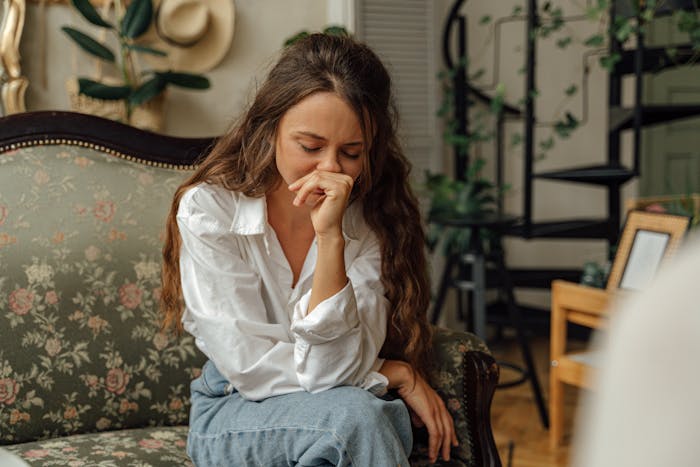The Pros and Cons of Detoxing at Home
There are simply more pros than cons to the process of detoxing at home.
Firstly, it is extremely affordable, whereas detoxing in a facility may cost up to 10 times as much.
You get to be in the comfort of your own home but this can also be discomforting because you will create a mess in your own home that you or someone else will need to take care of.
It is convenient to be in your own home but you may be so comfortable that it will be difficult for you to break from your normal habits of using drugs or alcohol.
Being in a facility will remove the option of being able to relapse at least while you are in treatment.
Things to Remember About Detoxing from Drugs at Home

Drug detox takes the average person between seven and ten days to complete.
You may need someone to be with you for the entire process to ensure your safety. This can be one person or several people who take turns because that person should be awake while you are sleeping to keep a close watch on you.
The people who agree to help you should be aware that they are taking on a massive responsibility and, at times, the task may be thankless and difficult.
The person(s) helping you should have a list of other people that they can call in the event of an emergency.
That list should include your doctor and an addiction professional who is on standby, that may be available to make a house call should it become necessary.
Detox from drugs is never a pleasant experience. You might become violent and aggressive and may need to be restrained so this task is not for the feint of heart.
This could be several family members, neighbours or friends. All your helpers should be aware of any medical conditions you have if you need to be taken to hospital.
Should I Detox from Drugs at Home?

You may know all that you think you need to know about drug detox at home, but that doesn’t mean that you should do it.
You should discuss this with your doctor and determine if your doctor believes it is safe for you to do because drug detox can be very dangerous.
Withdrawal symptoms can be severe and very upsetting, including hallucinations, tremors and severe anxiety.
If you have any serious health issues, then you should not detox at home.
Some of these more serious issues include liver disease, diabetes, depression and anxiety and may require detox under supervision in an accredited facility under constant supervision.
During detox, you may become violent, and if you are worried about harming friends and family, then you might want to detox with staff that are trained and experienced to deal with your potential reactions to detox.
If you have ever had seizures or convulsions previously, then you will probably experience them during detox.
These may be preventable with the right medication administered by medical staff.
What to Expect During a Drug Detox at Home

The detox process will be dependent on many things.
First and foremost, withdrawal symptoms will be based on the type of drug you have been abusing and how long that has been happening.
The state of your physical and mental health will also play a key role in detox.
You will experience a wide range of withdrawal symptoms as your body tries to recover, including nausea, sweating, anxiety, irritability, diarrhea, vomiting, shaking, anxiety, depression, insomnia, hallucinations, mood swings, severe cravings, loss of appetite and convulsions.
Your symptoms may be mild or very severe, and you may have symptoms not listed here.
Detoxing from drugs is a different experience for every person, and for some, being supervised in a proper detox clinic is the best option, while others feel that home is the best place to experience this serious transition.
1. Risks of Going “Cold Turkey” From Opioids
Opioids include heroin, hydrocodone, oxycodone, morphine, hydromorphone, codeine and methadone.
The use of opioids has become a serious epidemic.
With the Fentanyl crisis rising in the background and taking so many lives, there has never been a better time than now to quit.
The main risk of going “cold turkey” is that opioid withdrawal can have severe symptoms including diarrhea, achy muscles, agitation, vomiting and severe cravings which may not be controllable and might lead to a relapse.
2. Risks of Going “Cold Turkey” From Cocaine
Cocaine is an extremely addictive substance for many reasons. If you have tried to quit using it previously, you have experienced the feeling of a crash.
After the initial crash you will start to feel the full effect of the other symptoms and this may cause a relapse or turning to another substance like alcohol to manage those symptoms.
The most serious symptom is suicidal thoughts, and this is extremely dangerous.
3. Risks of Quitting Cannabis “Cold Turkey”
Your brain cells are what is mostly targeted by the active ingredient of cannabis and that is why the main symptoms of withdrawal from its use are mainly mental ones.
A person who suddenly quits using cannabis can experience insomnia, anxiety, depression, irritability and even anorexia because cannabis causes many to have a hearty appetite.
If someone has been using cannabis to deal with feelings of anxiety or depression, they may not be able to deal with those feelings when they are not using cannabis.
If the feelings are too intense, then it could be the cause of a relapse.
Depression and anxiety can cause an increased risk of suicide and this can be dangerous if a person quits using cannabis and is driven to take this route.
If a person uses cannabis to deal with mental illness, then quitting cold turkey can have symptoms returning quickly and intensely, and this may be too much for a person to deal with.
How to Prepare for a Home Detox
It is not easy to end an addiction to drugs or alcohol and the detox process will be an uphill battle.
Many people dread detox because they believe that they will be in agony throughout the process, and they won’t be able to deal with it.
Drug detox is a challenging experience, but if you prepare for it properly then you should be able to get through it without too many roadblocks.
Many people choose to detox in a facility that has supervisory staff and medical doctors, however, detoxing at home is also an option so long as one is properly prepared for it. It is important to find a good group of support people to assist you during the process.
You will also need to research the process to understand the various stages that you will be experiencing so that when your support people see those stages they will also understand.
You should consult with your medical professional to determine if detoxing at home is the right course of action for you.
You will need to take time away from work and friends until you complete the process.
What to Eat & Drink During Home Detox

Getting your health back is one of the main aims of detox, and the best way to do that is to stay hydrated.
Detox can cause anxiety, loss of appetite, depression, fatigue, nausea and vomiting, making it difficult to eat.
The main thing is to ensure that you are consuming enough fluids to rehydrate yourself and eliminate toxins from your body.
All fluids are acceptable, including ice pops, juice, water, broth and gelatin during the initial stages of withdrawal.
Focus on eating a healthy diet once you regain your appetite, including foods from all of the food groups, such as fresh fruits and vegetables, lean protein and whole grains.
Supplement your diet with vitamins and minerals, particularly vitamins E, B, C, calcium and a multivitamin.




